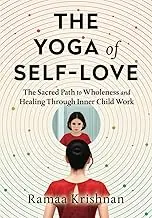What Did You Say? Mark Alyn Talks About Hearing!
The Gifts of Acceptance For Gay Pride Month
 Danny Miller, author of “The Gifts of Acceptance” joins Mark Alyn as co-host for this series on accepting people of all kinds.
Danny Miller, author of “The Gifts of Acceptance” joins Mark Alyn as co-host for this series on accepting people of all kinds.
In THE GIFTS OF ACCEPTANCE: Embracing People and Things as They Are (A Library Journal Best Wellness Book of 2018), Miller shares what he’s learned, through extensive research, inspiring true stories, and his own experience with hardships, about the integral relationship between accepting the facts of life and others, with their quirks, flaws, and differences, and enjoying greater life satisfaction. What’s more, he offers insights, intentions, and strategies for practicing acceptance of difficult people, including our parents.
“Acceptance can be very liberating, and none more so than with regard to our parents,” Miller assures. “It releases us from the shackles of the past and the anger and resentment for what they did or didn’t do for us or give us. In no longer being bound to our parents for our happiness and security, we are free to discover who we really are and who we can become.”
With wisdom, compassion, and humor, Daniel Miller can talk about mindsets and practices to help you more fully accept, and truly honor, your mother and father. Among his keys:
- Process your negative feelings. Rage, resentment, unworthiness… For many adults, such issues are rooted in the wrongs of their parents. Too often, this leads to blame. As Miller points out, even if your parents are culpable, “blaming them will not change matters.” Accepting your parents does not mean excusing their harmful or abusive behavior. Yet, working through negative feelings towards your parents is vital to moving forward with your own life.
- Be compassionate. Like all people, parents are shaped by their experiences and circumstances. Strive to see your parents as people with their own faults and frailties. Take into account what they went through as children—their struggles, degree of education, socioeconomic status, social norms at the time—and how their own parents parented them. To have compassion for your parents, context helps.
- Lower your expectations. As adults, like we did as children, we often expect our parents to be better than who they are and do better than they possibly can. The pressure of such unrealistic expectations often fuels feelings of resentment and disappointment. Holding our parents to high expectations, Miller makes clear, is really about our own underlying needs. As adults, fulfilling those needs, whether to be supported, nurtured, or validated, is our responsibility to ourselves.
- Acknowledge your parents’ gifts to you. Celebrate the positive attributes you received from your parents. “In most cases, they are there if you are willing to look for them,” Miller promises. For example, a strict disciplinarian may also be hardworking, highly principled, and honest—and instilled those traits in you. “And, of course,” Miller reminds, “we should not forget the greatest gift our parents have given us: life itself.”
Gifts of Acceptance
Gifts of Acceptance Part 2




